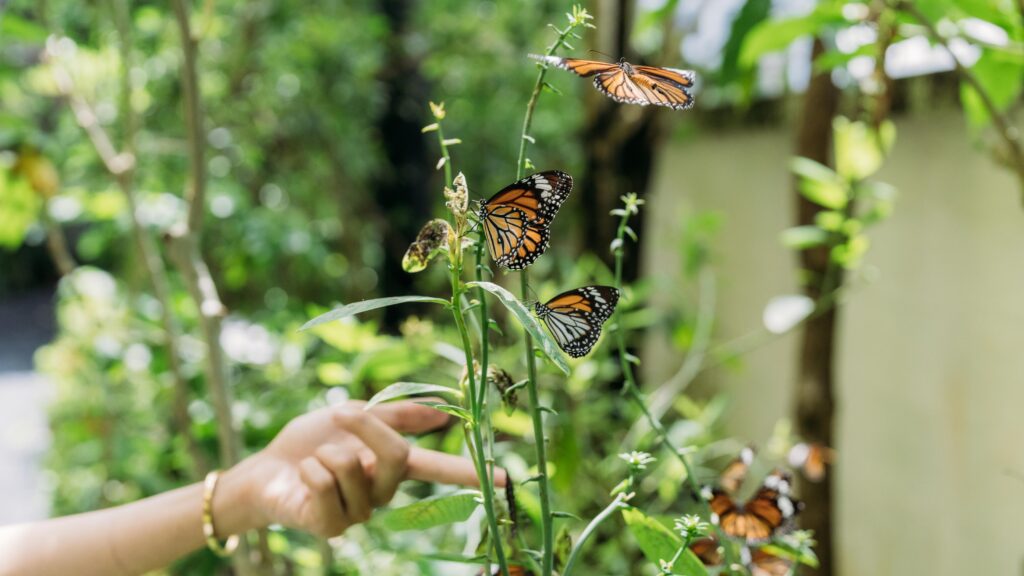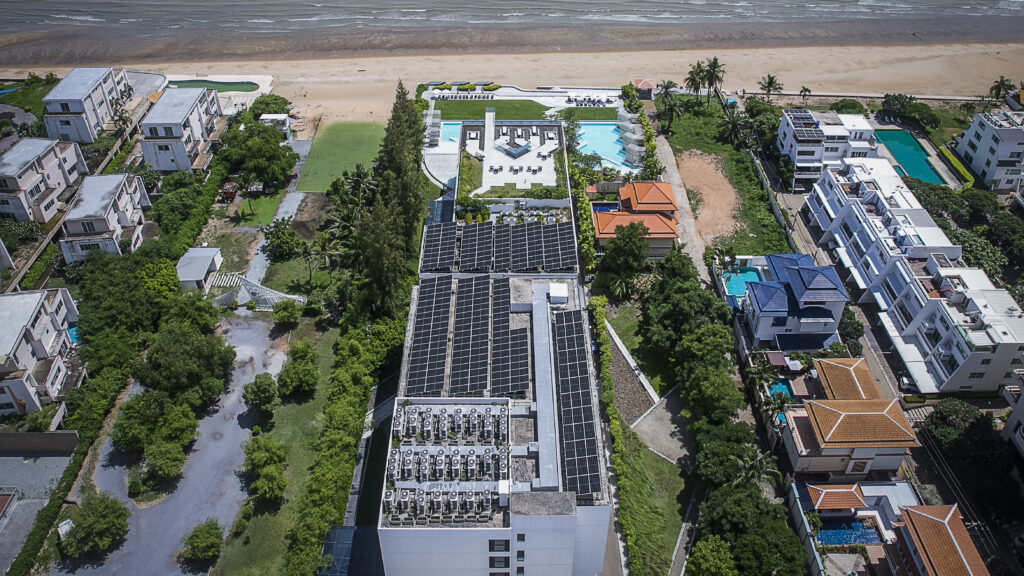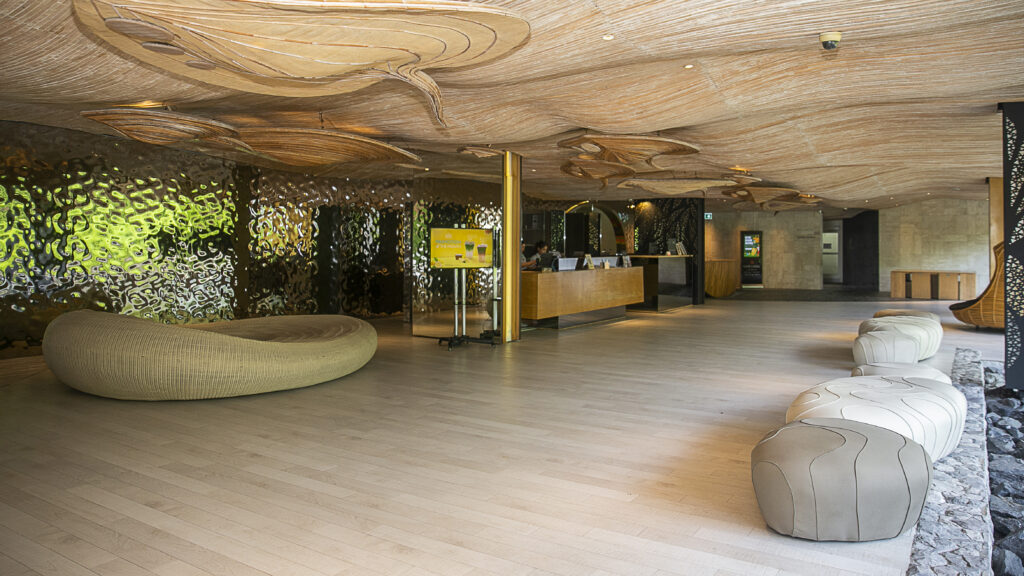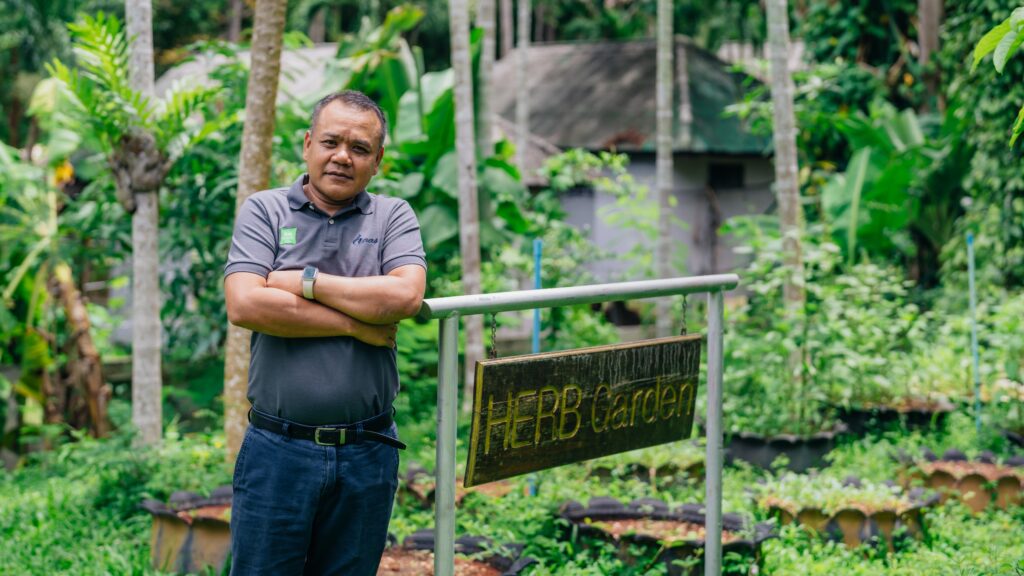In the fourth of the five CF-Hotels series of articles, we take a look at the key person behind the green operations of three CF-Hotels members, and what makes them different.
These days, travellers base their accommodation choices not just on price, value for money, location, and amenities, but also on hotels’ sustainability and environmental care, including reduction of single-use plastic and greenhouse gas emissions.
Yet, regardless of how well each hotel has established environmental and sustainability policies, its goals cannot be achieved without efficient human resources. This is where the brain behind the effort comes in.
This “green” man (or woman) is the driving force behind each unit achieving the goal of sustainability, which benefits not only the hotel but also travellers and the local community.
Phuket Marriott Resort & Spa, Merlin Beach

Key person: Rawiwan Poongam, Resort Experience Manager and Sustainability Champion
Key message: “We must be both the key and the intermediary in driving and following up on all hotel units under the sustainable environmental policy. We believe that taking care of the environment and community is just as important as creating a memorable experience for our guests.”


Key success: 1,006 solar panels with a peak capacity of 653 kilowatts, capable of cutting carbon dioxide emissions by 489.93 tons per year, plus equipment measuring seawater temperature to gauge the impact of climate change on marine life.
Key point: Solar panels have been installed on the roofs of four buildings within the property covering over 3,000 square meters. The solar panels have been operating since April 2024 and are expected to reduce annual energy use by at least 7% and minimize carbon emissions by up to 489.93 tons per year. This hotel is thought to have the most comprehensive solar panel setup in Phuket.
“Our responsibility is to oversee the hotel’s sustainability policy focused on the most efficient use of energy and resources. We must set goals and ensure we achieve them. We must be both the key and the intermediary in driving and following up on all hotel units under the sustainable environmental policy,” said Rawiwan.
As the sustainability champion, her job is to ensure that the hotel’s green policy is turned into reality through the cooperation of all hotel units and its 300-plus staff.
Phuket Marriott Resort & Spa, Merlin Beach, has been certified as an environmentally friendly hotel (Green Hotel) at the silver level for its sustainability efforts from the Department of Climate Change and Environment since 2023, and the gold level from Travellife since 2022. It became a member of CF-Hotels last year to join the fight against greenhouse gas emissions.
“The hotel’s policy is 100% against single-use plastic. Glass bottles are placed in rooms for guests to refill at any time, while employees have been given water flasks. Any employee caught on the premises with single-use plastic, be it a bag or water bottle, faces a fine of 100 baht,” she said.
“The hotel also has a wastewater treatment system, waste-separation system, and uses [low-energy] LED lights. Computers will automatically turn off if left unused for 15 minutes. We also have a vegetable and herb garden to supply ingredients for employees’ meals and charging stations to promote the use of electric vehicles. The hotel also provides transportation to employees so they do not have to drive themselves to and from work.”
The resort is located on Tri Trang Beach, which boasts crystal-clear waters and beautiful coral reefs. Since 2018, the hotel has been working with the Fisheries Department to keep the beachfront clean and protect corals. It has also set up the Reef Education Center to promote public knowledge and awareness of the marine ecosystem.
“The hotel recently appointed a marine biologist to take care of coastal waters and their diverse marine life. The aim is to inform tourists of the importance of staying out of the sea at low tide. Swimming at this time can destroy the corals. During high tide, we conduct snorkeling tours so people can see for themselves how beautiful the corals are and learn to travel in an eco-friendly way,” she said.
By the end of April, the hotel had also installed undersea temperature and light monitors at a distance of three, six, and 10 meters from the surface of the water to study the impact of climate change on marine life. The hotel has also created the Merlin Butterfly Sanctuary, where people can learn about butterflies and check out different species ranging from the common Mormon (Papilio polytes), the great orange tip (Hebomia glaucippe), and the common birdwing (Troides helena) to the Danaus genutia, with its “tiger stripes” of bright orange and black.
“Since there are a lot of butterflies near the hotel, we have planted more trees, especially citrus trees like lemon, for them to lay their eggs. Now, there are many different species and we also have a butterfly nursery center. In the garden, we grow orchids to use as decoration inside the hotel. We also provide books about corals and butterflies for our guests to read.”
Rawiwan said that these days, travelers increasingly prefer “green” accommodations and pay a lot of attention to eco-friendly activities. For instance, last year 11,042 guests participated in the hotel’s eco-snorkeling tours.
“We believe that taking care of the environment and the community is as important as creating a remarkable experience for our guests,” Rawiwan said.
Veranda Resort Pattaya Na Jomtien
Key Person: Kamol Sangiamwong, Chief Engineer
Key Message: “I support measures on the efficient and most cost-effective way of using electricity to reduce greenhouse gas emissions as much as possible.”



Key Success: Converting to 100% LED bulbs and installing solar panels that reduce power usage by 7-10% while cutting electricity bills by up to 80,000 baht per month.
Key Point: The resort is set to install solar panels by September this year, estimating they will reduce the usage of electricity by 7-10% per month. It also expects that tapping alternative energy will cut its electricity bill by up to 80,000 baht per month. All light bulbs in the hotel have been changed to LED. Veranda won Gold certification as a “green hotel” from the Department of Climate Change and Environment in 2023 and joined the CF-Hotels platform the same year to reduce greenhouse gas emissions as per Greenhouse Gas Management Organization standards.
“The aim each year is to reduce total resource and energy usage by at least 3%. Each unit is required to keep usage statistics every month to calculate the amount of oil, electricity, tap water, and gas used. I carefully monitor these numbers to check if they match the occupancy rate and compare them with data from previous years. I support measures on the efficient and most cost-effective way of using electricity to reduce greenhouse gas emissions as much as possible,” Kamol said.
He also keeps track of purchases of key products like rice, vegetables, fruits, dry food, and seafood to see where they were sourced and how many kilometers they traveled to get to the resort. The aim is to purchase locally to help keep the resort’s carbon footprint low.
“Wastewater is treated and then used to water plants, thus reducing the use of tap water by as much as 3 cubic meters per day. The condition of the wastewater management system and the cleanliness of the grease trap are checked regularly. The water meter, water supply pipe system, and booster pumps are checked twice daily to ensure there are no leaks and the pressure level is good.”
The hotel covers approximately 5-rai (nearly 2 acres), of which 39% is devoted to buildings and structures and 32% to greenery. Trees like banana, coconut, papaya and pong pong (Cerbera odollam) surround the property to add shade while also helping to supply the kitchens. The organic vegetable garden also provides ingredients for the resort restaurants.
Waste, meanwhile, is separated into four types: recyclable, organic, hazardous, and general. Recycled waste earns approximately 2,000 baht per week when sold, while organic waste is used to make fertilizer or bio-extracts.
“Hotels that address environmental issues seriously have a positive impact not just on the property, but also on the neighboring community and society at large. Tourists today pay great attention to this matter and many ask what green projects our hotel is participating in. We display our ‘green’ certifications at the reception desk so that guests can be confident that they are supporting sustainable tourism,” Kamol said.
Ibis Styles Krabi Ao Nang

Key person: Sutan Piromnarg, Hotel Manager
Key message: “We are still new in the ‘green hotel’ business and need to participate in more observation programs and workshops. We also plan to teach our staff about the benefits of green practices, not just in the hotel, but also in their own lives so they can apply them to their daily life and benefit their families and communities.”



Key success: Reducing single-use plastic and food waste, as well as calculating the distance hotel supplies have to travel, to determine how much carbon is generated and also encourage a policy of purchasing locally.
Key point: Ibis Styles Krabi Ao Nang Hotel, a medium-sized three-star hotel with 45 employees, became a member of the CF-Hotels platform in 2023 to join the battle against climate change. The hotel has an environmental committee, with hotel manager Suthan Phiromnak serving as the advisory chairman. The goal is to be certified as an environmentally friendly hotel at silver level this year by the Department of Climate Change and Environment.
“We have little experience in green practices. We began by encouraging employees to check out how neighboring hotels like the Deevana Plaza Hotel have been so successful in implementing their green policies. As a first step, we have started separating and disposing of garbage properly in line with government guidelines, and also participating in sustainable activities held regularly in Krabi,” Sutan said.
The hotel is aiming to cut down on single-use plastic and minimize food waste. It has also installed solar panels in some spots, begun using more eco-friendly products, and is expanding its green space. Plastic signs in guest rooms are being replaced with wood, while waste is being separated for treatment.
“We have started calculating how much carbon is used by suppliers when they deliver products and will use this data to find ways to minimize our carbon footprint. Instead of having supplies delivered to the hotel daily, we may change to just Mondays, Wednesdays, and Fridays.
“In terms of water and electricity savings, our hotel is 12 years old so it will take time to solve certain issues, such as fitting water-saving sanitaryware in all 206 rooms.”
Sutan agrees that tourists nowadays prefer ‘green’ hotels, meaning that resorts must implement environmentally friendly policies that have a positive impact on not just the properties but also the wider community and society.
“We are still new in the ‘green hotel’ business and need to participate in more observation programs and workshops. We also plan to teach our staff about the benefits of green practices, not just in the hotel, but also in their own lives so they can apply them to their daily life and benefit their families and communities.”







